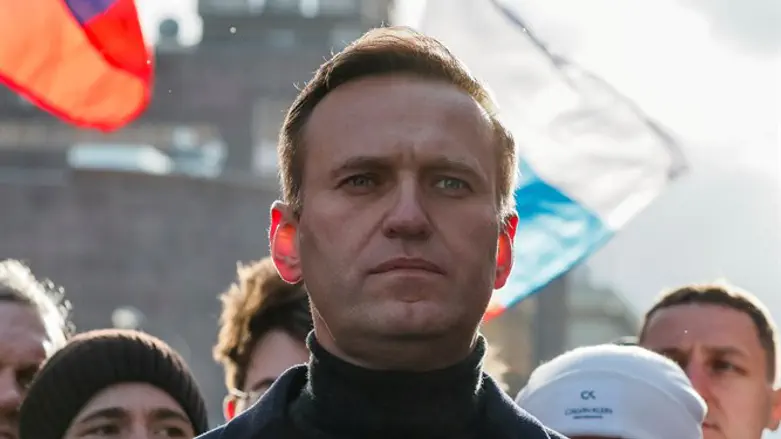
A Moscow court on Wednesday night outlawed the organizations founded by Russian opposition leader Alexei Navalny by labeling them extremist, The Associated Press reported.
The Moscow City Court’s ruling, effective immediately, prevents people associated with Navalny’s Foundation for Fighting Corruption and his sprawling network of regional offices across Russia from seeking public office.
Many of Navalny’s allies had hoped to run for parliamentary seats in the September 19 election.
The extremism label also carries lengthy prison terms for activists who have worked with the organizations, anyone who donated to them, and even those who simply shared the groups’ materials.
Navalny, one of Russian President Vladimir Putin's most prominent critics, was arrested on January 17 for alleged parole violations after returning from Germany, where he had been recovering from being poisoned with a military-grade nerve agent.
He was later sentenced by a Russian court to a three-and-a-half-year sentence, though his lawyer said he would serve only two years and eight months in jail because of time he has already spent under house arrest.
In late March, Navalny launched a hunger strike to protest the authorities’ failure to provide proper treatment for his back and leg pains. He subsequently ended the hunger strike on the advice of his doctors.
Navalny’s offices in dozens of Russian regions already shut down in April after the prosecutors issued an injunction to suspend their activities pending the court’s ruling, but the opposition leader’s associates have vowed to continue their work in different formats, noted AP.
As the Moscow court was considering the case, Russian lawmakers fast-tracked a new law that banned members of organizations declared extremist from running for public office. The law was signed by Putin last week and combined with the court ruling will dash the hopes of several of Navalny’s associates who have declared their intention to run for parliament.
